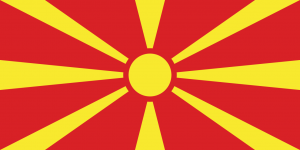Language/Macedonian/Grammar/Gender
Hi Macedonian learners! 😊
In this lesson, we will go over one of the most important aspects of the Macedonian language: gender. Understanding gender is crucial to being able to speak Macedonian fluently and accurately. We will also provide you with some interesting facts about Macedonian culture and analogies to help you understand the concepts better.
Consider broadening your understanding by checking out these related lessons: Common Prepositions & Future Tense.
What is gender in Macedonian?[edit | edit source]
In Macedonian grammar, every noun has gender, which is either masculine, feminine or neuter. In order to properly use articles or adjectives, you need to know the gender of the noun you are referring to.
For example, if you want to say "the cat" in Macedonian, you would use the word "мачка" (machka), which is feminine. Therefore, you would need to use the feminine form of the article "the" – "мачката" (machkata).
Here are some examples of the different genders and their endings:
| Macedonian | Pronunciation | Gender | English |
|---|---|---|---|
| мачка | machka | feminine | cat |
| куче | kuche | neuter | dog |
| дедо | dedo | masculine | grandfather |
| баба | baba | feminine | grandmother |
| единствен | edinstven | neuter | only |
| негов | negov | masculine | his |
As you can see, gender is not always predictable and you will need to memorize the gender of each noun in order to use the correct article and adjective.
Tips for remembering gender[edit | edit source]
One way you can try to remember the gender of a noun in Macedonian is by associating it with an image or analogy. For example, the word "мачка" (cat) is feminine, so you can associate it with the color pink, something traditionally associated with femininity. Similarly, the word "куче" (dog) is neuter, so you can associate it with the color grey, which is more neutral.
Another tip is to try to group nouns by gender, so you can remember the patterns easier. For example, many words referring to professions – such as "доктор" (doctor), "програмер" (programmer), and "професор" (professor) – are masculine.
Practice is also key. As you learn new nouns, try to memorize their gender as you go, so you can start to build a solid foundation of vocabulary with gender already incorporated.
And of course, don't be afraid to make mistakes! The more you practice and use the language, the easier it will become to remember gender and incorporate it into your speaking and writing.
Interesting facts about gender in Macedonian[edit | edit source]
Did you know that in Macedonian, gender isn't always based on biological gender? For example, the word for "child" – "дете" (dete) – is neuter, even though it could refer to either a boy or a girl. This is because gender in Macedonian is based on linguistic gender, rather than biological gender.
Another interesting fact is that Macedonian has a unique construct known as "dual" – meaning there are distinct forms for when there are two of something. In the dual, the gender of the noun must agree with the number of items, so if you are referring to two feminine objects, you would use the feminine form of the noun.
Dialogue[edit | edit source]
Here's an example dialogue to help you see the use of gender in action:
- Person 1: Кој е тој доктор? (Koj e toj doktor?) – Who is that doctor?
- Person 2: Тоа е мојата сестра, докторма. (Toa e mojata sestra, doktorma.) – That is my sister, the doctor.
In this dialogue, you can see that the word "доктор" (doctor) is masculine, so the feminine form of the adjective "мој" (my) is used.
Conclusion[edit | edit source]
Congratulations, you've completed this lesson on gender in Macedonian grammar! Remember, understanding gender is crucial in the Macedonian language and takes patience and practice, but the more you use it, the easier it will become.
To improve your Macedonian Grammar, you can also use the Polyglot Club website. Find native speakers and ask them any questions!
Sources[edit | edit source]
- Macedonian grammar - Wikipedia
- Macedonian Grammar - Gender
- Level 44 - Grammatical Rules - Basic Macedonian (with Grammar ...
Excellent job on conquering this lesson! Consider delving into these related pages: Give your Opinion & Definite and Indefinite Articles.
Other Lessons[edit | edit source]
- Adverbs
- Adjectives
- Give your Opinion
- Negation
- Pronouns
- How to Use Be
- Future Tense
- Feminine
- Conditional Mood
- Nouns

